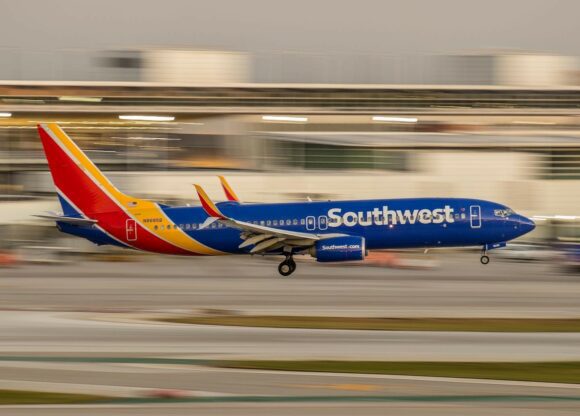We believe an area that deserves more aerospace attention is biofuels. Airlines need these fuels because they can reduce fossil fuel price volatility. Biofuels can be sourced in many places in the world. Places subject to much less political unrest than where oil comes from. A growing biofuel supply is necessary not so much for the positive Eco-impact as for jet-fuel price stability. Prices for biofuels now are exorbitant and have a long way to go before becoming an economical alternative to fossil fuel.
Many airlines are conducting biofuel blend test flights. Lufthansa has one planned to cross the Atlantic. Airline industry groups such as IATA are encouraging biofuel development. A primary concern is that biofuel suppliers need to reduce their risk, too. They will not build plants to supply fuels based on airline demand alone. They need a steady demand for large quantities – and airlines are too risky a customer base. The only viable customer that can offer the desired level of stable jet fuel demand is a government – the US military is the ideal customer frequently mentioned.
Even as the need for biofuels are obvious, the impact of biofuel production on other parts of the economy is a concern. In 2005 the US had 16 million acres growing corn, and in 2011 46.5 million acres were growing corn, 190% more in a half decade.. The reason is demand for ethanol. In 2005 10% of the corn crop went to ethanol production and by 2011 it was 27%. If biofuels impact the food chain then we are solving one problem but creating another. The US Department of Agriculture reported in February 2012 that US ethanol refiners for the first time consumed more corn than livestock and poultry farmers. Not a comforting scenario. The problem with ethanol is two-fold, however. It has less energy than fossil fuels and the carbon footprint to produce it is higher than the benefits achieved.
Consequently the opportunity to develop biofuels from waste materials, algae and biomass which are not part of the food chain is why Boeing, Aibus and key Tier 1 suppliers focus on these alternatives. There are numerous input options so the problem is not insurmountable or massively complex. Governments can play a crucial role at the front end by offering tax incentives to generate supply by growing plants like jatropha and high oil grasses on marginal land unsuitable for crops.
A fascinating program is being undertaken by a joint program funded by the U.S. Department of Energy, the Israeli Ministry of National Infrastructure and the BIRD Foundation. They successfully demonstrated that Virdia’s deconstruction process generated high-quality sugars from cellulose biomass (conversion of cellulosic pine tree sugars to drop-in hydrocarbon fuel), which converted to fuel via Virent’s BioForming process.
Governments can encourage biofuel demand by acting as a lead customer by buying blended diesel and jet fuels. A crucial first step would be governments supporting supply development by offering stable demand.
In January Airlines for America, the industry trade organization for the leading U.S. airlines, and Boeing released several recommendations to the U.S. Department of Agriculture (USDA) to accelerate the commercial viability and deployment of aviation biofuels. You can download the 49 page report here. The US Department of Agriculture (the lead agency responsible for feedstock development and production systems) joined with Airlines for America and the Boeing Company to accelerate the availability of sustainable aviation biofuels in the United States, increase domestic energy security, establish regional supply chains and support rural development. Another US-based organization committed to the development of sustainable biofuels is the Commercial Aviation Alternative Fuels Initiative, an organization that notes “U.S. commercial aviation consumes about 3 percent of U.S. total energy use, it drives about 6 percent of the U.S. gross domestic product and just under 9 percent of national employment.” There are many commercial aviation industry people getting behind the process of developing biofuel options for airline use.
IATA anticipates that airlines could be using biofuel blends by 2017 for 1 percent of fuel requirements. At the moment this is still a dream. But it could easily become reality if key players stepped up.
The airline industry needs this process to get started immediately. The numbers demonstrate that airlines cannot survive current fossil fuel price volatility and current airfare levels must impact air travel demand. Failing airlines will set off downstream impacts that will lead to layoffs throughout the travel industry. The EU has seen five airlines fail within the past six months. More are on the brink – from the EU to India.
The fact that a biofuel investment boom could produce a cleaner environment is an exquisite coincidence.




